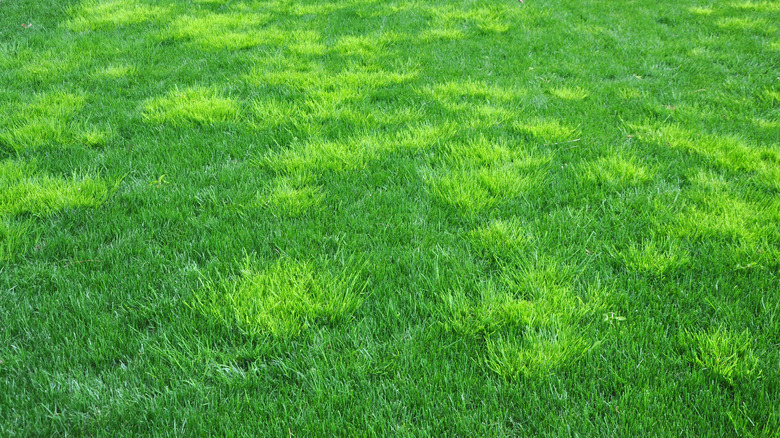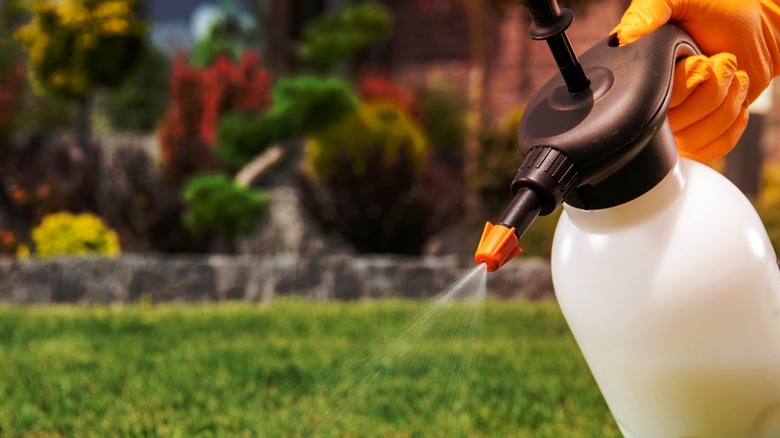How & When To Tackle Bluegrass So It's Never A Problem
There's nothing quite like the lushness of a well-kept lawn, but keeping your yard weed-free can present quite a challenge, as many homeowners know. This is especially true when those weeds are particularly relentless, like bluegrass. Bluegrass can be a nuisance for those who are trying to maintain a uniform lawn but are also known to hog vital nutrients from nearby plants around your yard and garden. These weeds are always at work, continuing to germinate throughout the winter months, and are not easily deterred as they are able to reseed even when they've been mowed over.
While you can certainly tackle your bluegrass problem by manually digging up the weeds, using pre-emergent herbicides as a proactive measure can help make the job feel less like a battle. This means applying the weed killer preemptively, timing the applications carefully and deliberately at certain points throughout the year before seed growth occurs.
How to use pre-emergent herbicides to effectively control bluegrass
For tackling bluegrass, apply the pre-emergent herbicides between August and November. The treatments will last approximately three to five months, after which time you can apply post-emergents. When temperatures outside don't rise above 75 degrees Fahrenheit for at least four days in a row, you can apply the first of two recommended fall applications of pre-emergents. For most products, wait eight to 10 weeks and do a second application in late fall for the best results.
In addition to your fall applications of pre-emergent herbicides, you may have to hit the problem areas around your lawn again in the spring as well. This can be done from late January to early May, depending on where you live. As with the fall application, you'll want to time your treatment right, and apply it to your lawn before the warm weather returns and before new growth begins to occur.

